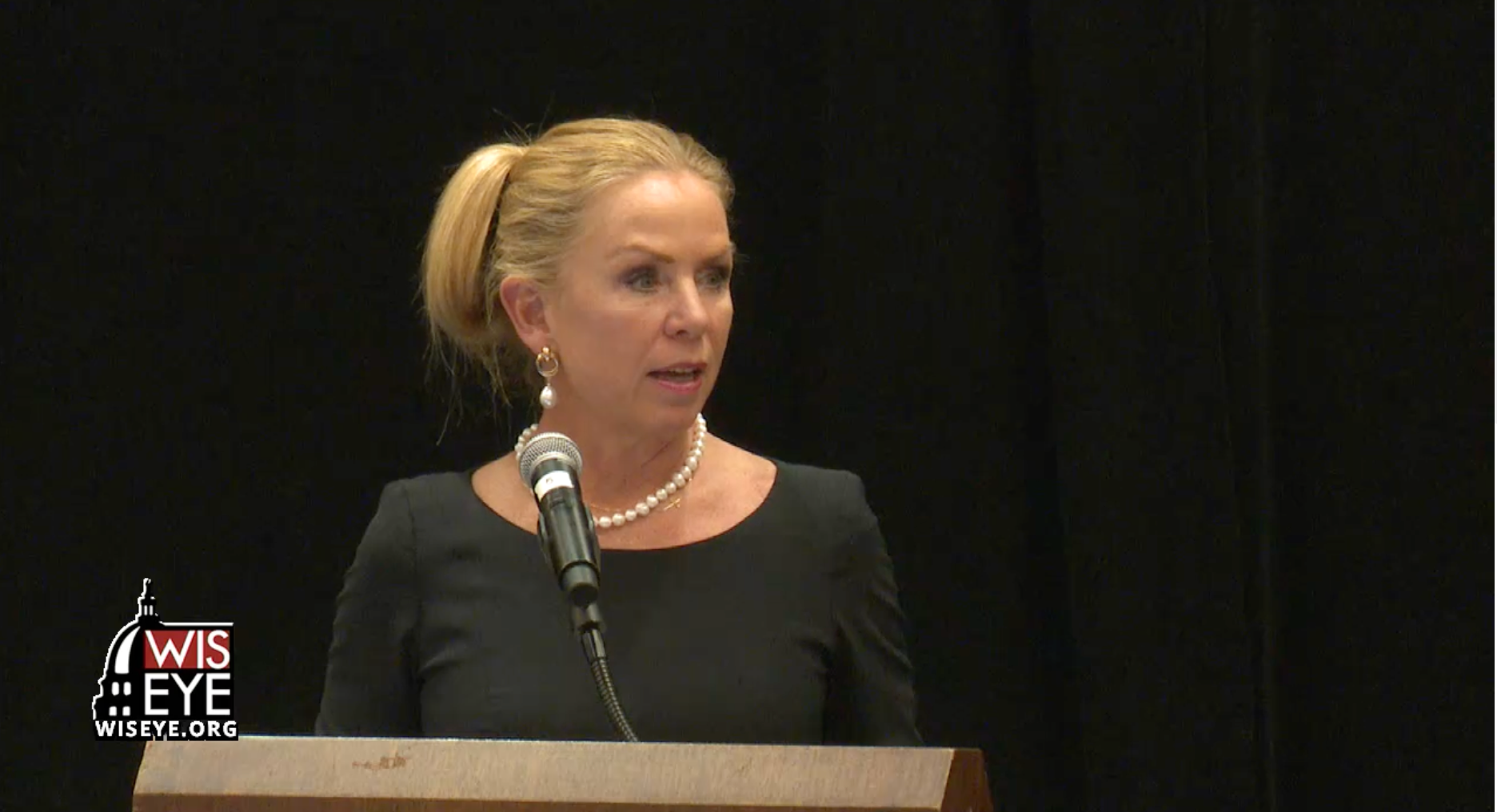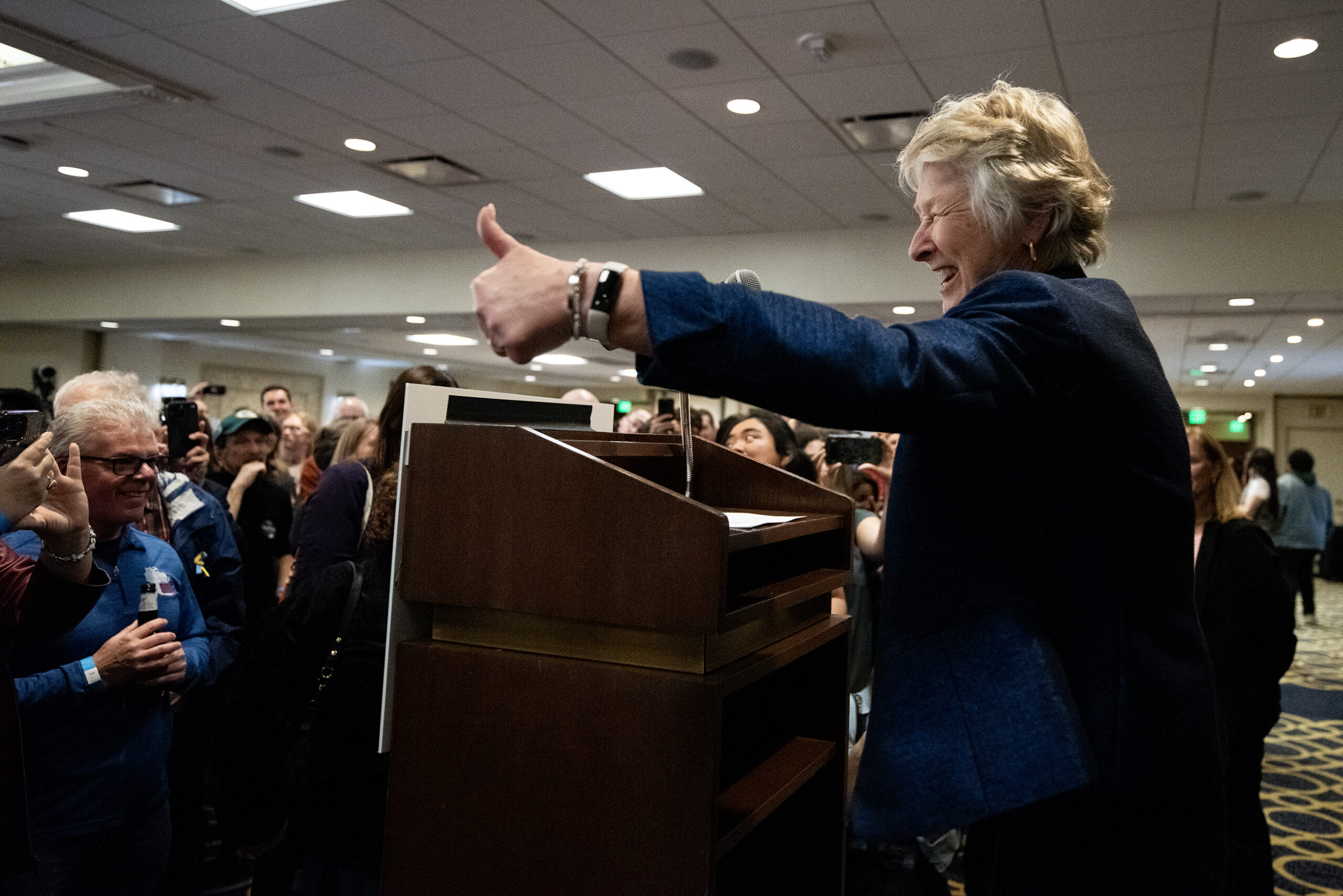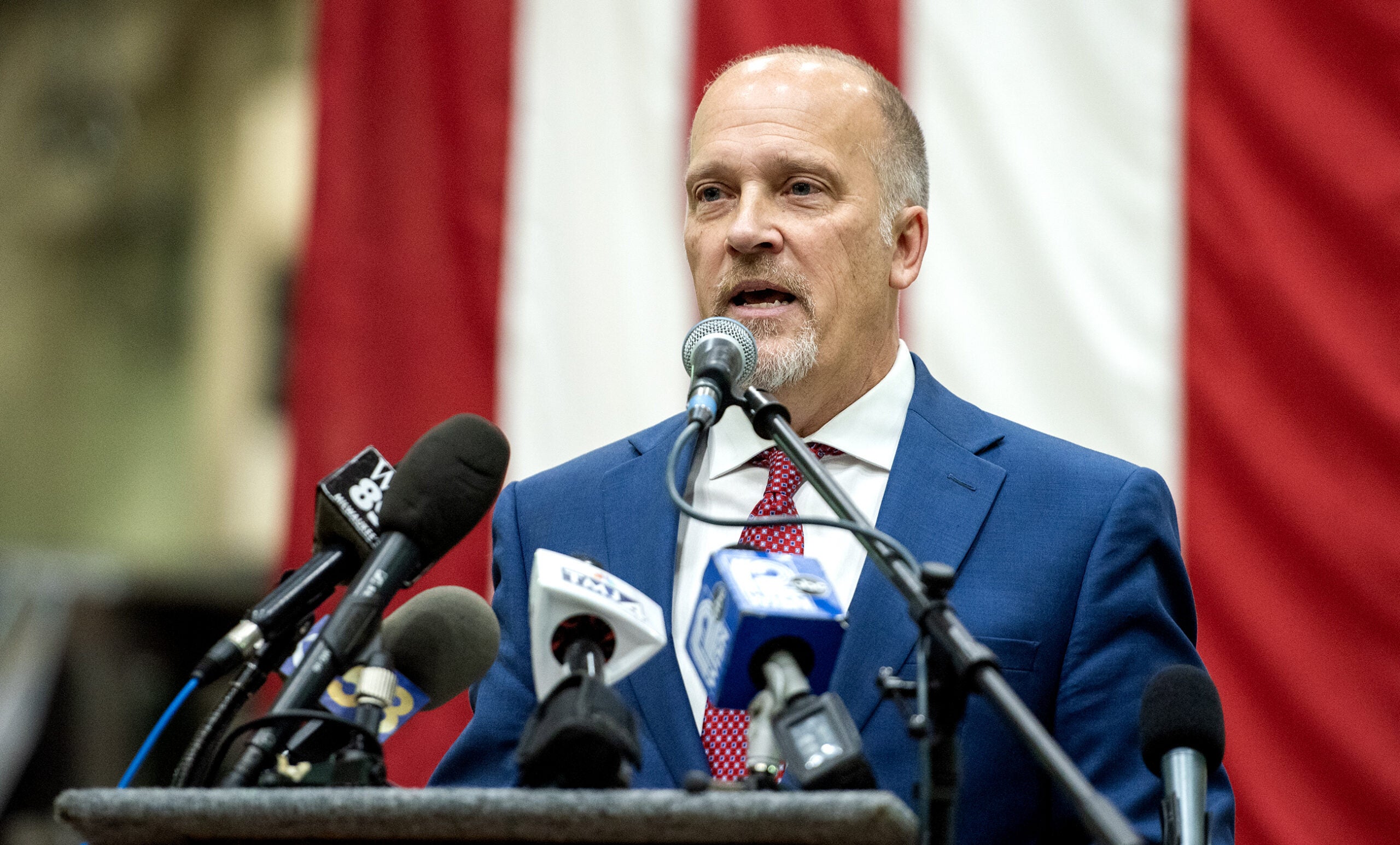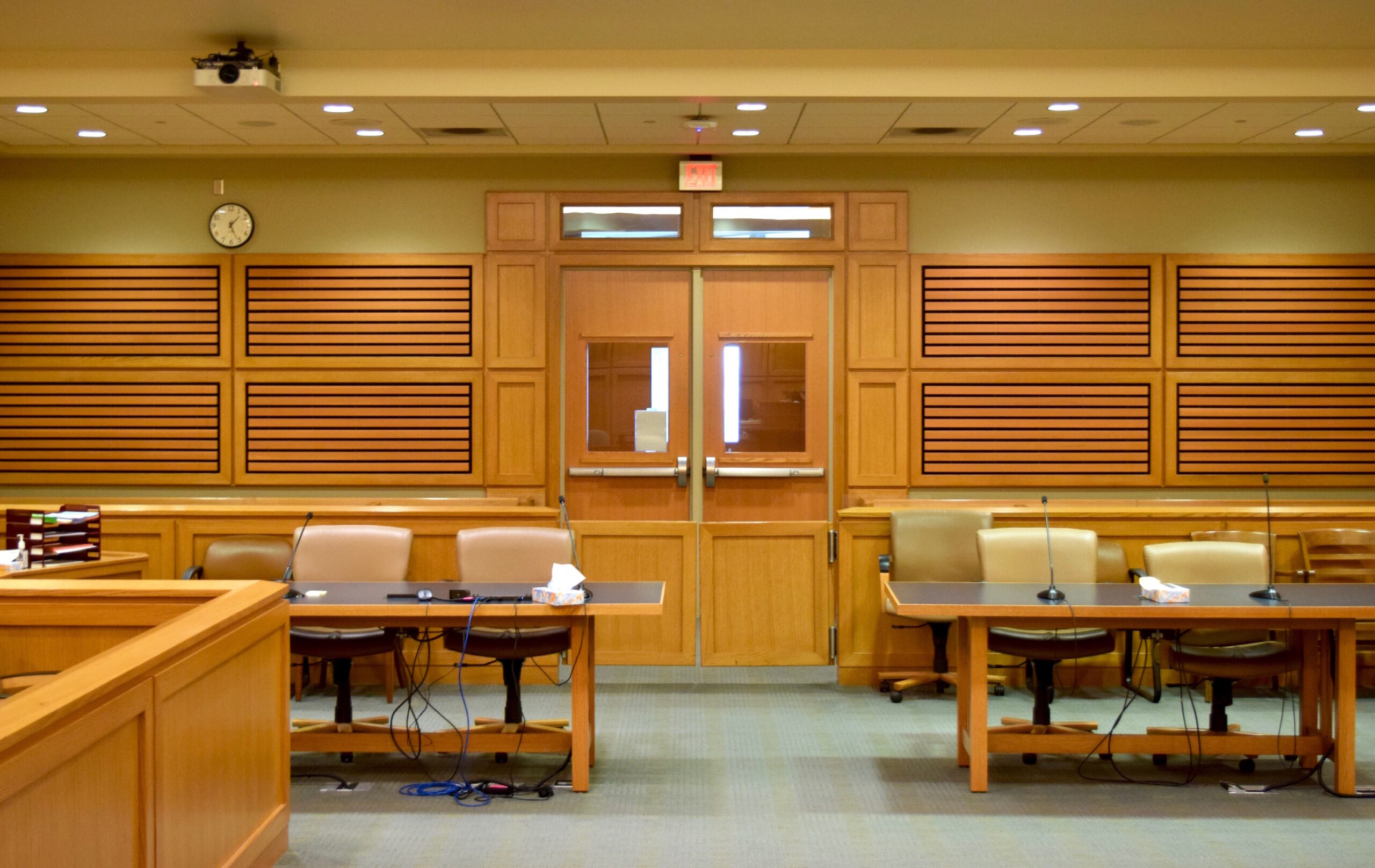Wisconsin Supreme Court Chief Justice Annette Ziegler said the state’s courts are facing several challenges, including a lawyer shortage crisis, a backlog of felony cases from the COVID-19 pandemic and a need for more mental health diversion programs.
During her 2024 State of the Judiciary Address, Ziegler told attendees of the Wisconsin Judicial Conference they must continue to focus on nonpartisan issues impacting residents’ access to justice.
She said one of the most pressing challenges facing Wisconsin is an ongoing shortage of attorneys in rural parts of the state, who can serve as public defenders. A 2021 report by the State Bar of Wisconsin showed nearly half of all Wisconsin lawyers live in the most populous parts of the state like Milwaukee, Dane, Waukesha, Brown and Racine counties. At the time, the Bar reported seven counties didn’t have any attorneys certified to act as public defenders.
“The attorney shortage is particularly acute in our rural counties, where sometimes they don’t even have a single lawyer to take a case,” Ziegler said. “When we cannot provide members of the public who are exercising their constitutional right to be represented by counsel with an attorney, access to justice is seriously compromised.”
In June, Ziegler launched a committee of judges and attorneys from around the state aimed at recommending solutions. She said another promising development is the State Bar of Wisconsin’s Rural Clerkship Program, which placed its first cohort of 16 law students from Wisconsin and Minnesota into paid summer jobs in rural communities. The Bar announced last month that the program will continue in 2025.
Ziegler said that because the attorney shortage is not limited to Wisconsin, the committee is studying incentive programs in other states.
Mixed results in addressing pandemic-related court backlogs
Stay informed on the latest news
Sign up for WPR’s email newsletter.
Ziegler told the conference she has good news and “a few more challenges” with regard to ongoing court case backlogs. She said the good news is that Wisconsin’s backlog of misdemeanor cases has declined with 26 of 72 counties eliminating them entirely.
“Our misdemeanor backlog currently stands at about 2,100 cases,” Ziegler said. “This means we were able to clear about 1,300 cases since we gathered last year at the conference.”
The challenge, Ziegler said, lies with an ongoing backlog of around 12,000 felony cases.
“When it comes to felony backlogs, it may be factors like the attorney shortage or interpreter shortages that impact the backlogs, but the public still deserves to have their cases decided on a timely basis,” Ziegler said. “The felony backlog has remained fairly steady over the past year.”
Of Wisconsin’s 72 counties, Ziegler said 11 have cleared their backlogs of felony cases and returned to pre-pandemic levels and two dozen more have made notable progress. She said one of the tools being used to resolve the backlog of cases is Wisconsin’s pool of temporary, reserve judges. Ziegler said when she was a circuit court judge, appointing reserve judges was less common, but it had increased in her time as chief justice.
“In fact, so far this year, we’ve already used not quite 1,400 days of reserve judges,” Ziegler said. “That’s a 183 percent increase from roughly 2015.”
Mental health a growing concern for courts
Ziegler said a positive note for Wisconsin courts is a push to create more mental health and drug treatment diversion programs. She said circuit courts in Milwaukee, Outagamie, Manitowoc and Marinette counties have seen success with such programs.
This year, the State Justice Institute awarded a technical assistance grant to Wisconsin to provide what’s called a Sequential Intercept Model or SIM training for court officials. Ziegler said La Crosse County Circuit Court will host the first SIM training, which aims to divert people with mental health issues and substance abuse disorders away from the criminal justice system and into treatment programs.
“I’m very excited that we are partnering with the National Center of State Courts to expand use of this model in Wisconsin,” Ziegler said.
Wisconsin Public Radio, © Copyright 2025, Board of Regents of the University of Wisconsin System and Wisconsin Educational Communications Board.





